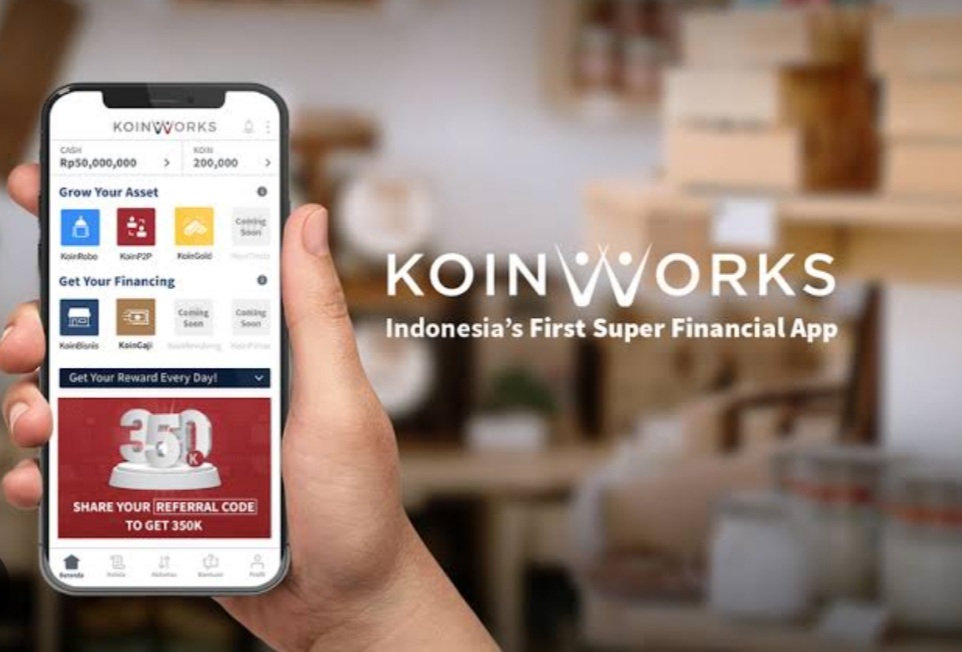In the ever-evolving landscape of fintech, trust is a currency as valuable as capital. Peer-to-peer (P2P) lending platforms thrive on reputation, transparency, and performance metrics. One such metric that has become a benchmark for investor confidence in Indonesia’s P2P sector is the TKB90 score. The recent significant drop in KoinWorks' TKB90 rating to 53.37 percent has raised concerns, questions, and debates about the health and sustainability of one of the country’s largest P2P lending platforms.
What Is TKB90 And Why Does It Matter?
TKB90 is a performance indicator mandated by Indonesia’s Financial Services Authority (OJK). It reflects the platform’s success rate in collecting repayments from borrowers, specifically within 90 days after the due date. A higher TKB90 score indicates better repayment performance and, by extension, lower risk for lenders.
For example, a TKB90 score of 95 percent suggests that 95 percent of borrowers are making repayments within the 90-day grace period. When KoinWorks, one of Indonesia’s most prominent fintech lending platforms, saw its TKB90 drop to just 53.37 percent, it was more than a statistical fluctuation — it marked a significant shift in how investors might perceive its operational risk.
Such a score implies that nearly half of the loans disbursed on the platform are not repaid within the 90-day window, which can signal potential trouble in borrower creditworthiness, loan structuring, or internal risk assessment frameworks.
What Is Behind KoinWorks' Sharp Decline?
While KoinWorks has not officially released detailed commentary on the root causes of the drop, multiple contributing factors could be at play.
- Economic Conditions: Indonesia's macroeconomic situation has been marked by inflationary pressures, weakening consumer purchasing power, and rising interest rates. Borrowers, especially MSMEs, may be finding it harder to repay loans on time.
- Borrower Segment Risk: KoinWorks predominantly serves micro, small, and medium enterprises (MSMEs), a segment highly vulnerable to economic shifts. When these businesses face operational setbacks, their loan repayments often suffer.
- Aggressive Expansion: KoinWorks has aggressively expanded its services in recent years, including launching KoinBisnis and KoinInvoice. Rapid growth, while attractive from a business standpoint, can sometimes lead to less stringent borrower vetting and weaker credit checks.
- Loan Product Complexity: Certain loan types, especially invoice financing or business expansion credit, carry higher risk. If a large share of underperforming loans is concentrated in such categories, it could drag down the overall TKB90.
- Platform Oversight and Collections: Declining TKB90 could also signal internal inefficiencies in debt collection, borrower engagement, or lack of proactive monitoring tools to address early signs of default.
Impact On Lenders And Borrowers
For retail investors who have used KoinWorks as an alternative to traditional investments, the TKB90 drop presents a wake-up call. A score below 60 percent not only undermines investor trust but also increases the perceived risk of capital loss.
Many individual lenders choose P2P platforms like KoinWorks expecting decent returns and relatively predictable risk profiles. However, with this new development, investors might begin pulling out funds or demanding higher transparency, putting pressure on the platform to adjust.
Borrowers, on the other hand, could face tighter credit evaluations or higher interest rates. A lower TKB90 score might prompt KoinWorks to recalibrate its risk models, making it harder for high-risk MSMEs to access financing.
This kind of systemic shock can create a feedback loop: reduced investor confidence leads to less funding available, which in turn restricts borrower access, thereby decreasing revenue for the platform.
Regulatory And Industry-Wide Implications
The Financial Services Authority (OJK) in Indonesia closely monitors TKB90 scores across licensed P2P lending providers. KoinWorks’ sudden drop could invite regulatory scrutiny. OJK may demand clearer disclosures, better reporting mechanisms, or corrective action plans.
Additionally, this case could prompt a sector-wide reassessment of how risk is communicated to investors. TKB90 has long been considered a reliable snapshot of repayment performance, but the sudden fluctuation suggests that the metric might also need contextual support — such as default breakdowns by loan type, borrower profiles, and time trends.
Other P2P players will also be watching this development closely. If investor sentiment sours because of one platform, the entire ecosystem could face a funding crunch. Therefore, transparency, risk disclosures, and stronger borrower screening may become a competitive advantage.
What Should KoinWorks Do Next?
In times of reputational challenges, fintech companies need to act swiftly and strategically. Here are several approaches KoinWorks could take:
- Improve Communication: Providing timely updates and explanations to both investors and the public can rebuild trust. Transparency about the causes and steps being taken is essential.
- Strengthen Risk Assessment: Re-evaluating credit scoring models and incorporating more real-time data from borrowers can improve early warning systems.
- Introduce Risk Buffers: Platforms can consider setting aside reserves or launching protection products to partially cover investor losses during downturns.
- Segment Loan Portfolios: Offering investors the ability to choose lower-risk vs higher-risk segments may help manage expectations and create more personalized risk profiles.
- Engage with Regulators: Proactively working with OJK and other authorities to ensure compliance and maintain licensing is crucial for long-term sustainability.
A Wake-Up Call For Indonesia’s Fintech Lending Sector
KoinWorks’ TKB90 decline is not just a company-specific issue; it reflects the growing pains of a maturing fintech lending ecosystem. The sector must now balance growth with sustainability, innovation with accountability.
Investors, too, must recognize that P2P lending carries inherent risks. While the promise of higher returns is attractive, due diligence, platform research, and diversification remain essential.
As for KoinWorks, how it navigates this challenge may well determine its place in Indonesia’s increasingly competitive fintech landscape.
Read More






 Tuesday, 24-02-26
Tuesday, 24-02-26







